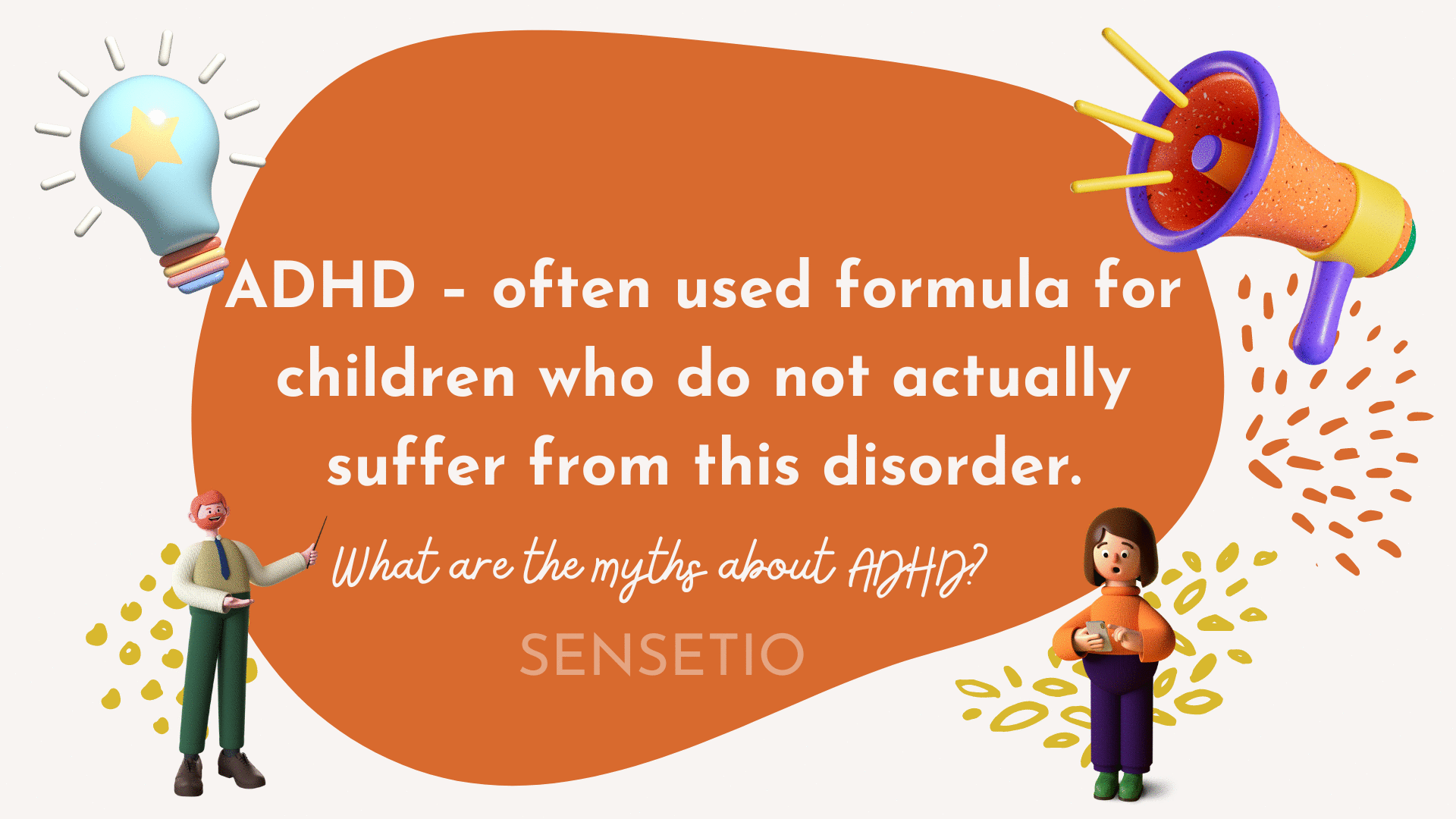Maybe it has happened to you too. You try with all your might to concentrate on work, reading or studying, but your thoughts run away at the speed of light. It often helps to "clear your head", to leave work and study, occupy the brain cells with something else and return to work later. But now imagine that there are people who are not helped by this and struggle with lack of concentration most of their day. And that's just a fraction of what some children and adults have to deal with every day. Unfortunately, despite the growing awareness of ADHD, there are still many myths and misunderstandings that can lead to incorrect conclusions and stigmatization of those who struggle with ADHD on a daily basis.
Myth #1: ADHD is just a childhood problem
As ADHD is often diagnosed mainly in childhood, there is a misconception that it does not affect adults. However, this is not the case. ADHD manifests itself and persists into adulthood. Many individuals with this disorder experience an impact on their work and personal lives. Diagnosis in adulthood is less frequent, but just as significant.
Myth #2: People with ADHD are just lazy and undisciplined
ADHD causes inattention and low behavioral regulation, but this does not mean that people with ADHD are lazy. They often have higher levels of energy and creativity.
Myth #3: ADHD is just an excuse for bad behavior and bad parenting
ADHD is a neurobiological disorder that has genetic and biological roots. It is associated with different functioning of the brain. It is definitely not just a matter of bad upbringing or individual's will.
Myth #4: People with ADHD are less intelligent
ADHD has nothing to do with intelligence. Conversely, some individuals with ADHD can be very gifted and successful in a wide variety of areas. It is important to give them the right support and develop talent.
Myth #5: ADHD treatment only involves medication
Medications are not the only treatment option, although they are very effective in managing symptoms and can be part of treatment. There are many other approaches, including therapies, support groups, lifestyle changes, and the like. Every ADHD is different, so treatment should be tailored to individual needs.
How is it possible that these myths arise? Undoubtedly, for the most part, it is a matter of low education of the public, which then leads to similar misunderstandings and stigmatization.
Every parent of a child suffering from this disorder has heard at least once in their life that they should be stricter with their child. Many of them say with hindsight that they would never try this approach again. Work on consistency, patience and a great deal of love, empathy and understanding has much better results than holding the whip in the form of various punishments. At home, they need understanding and acceptance. In adulthood, there will be many others who will show them their uniqueness.

